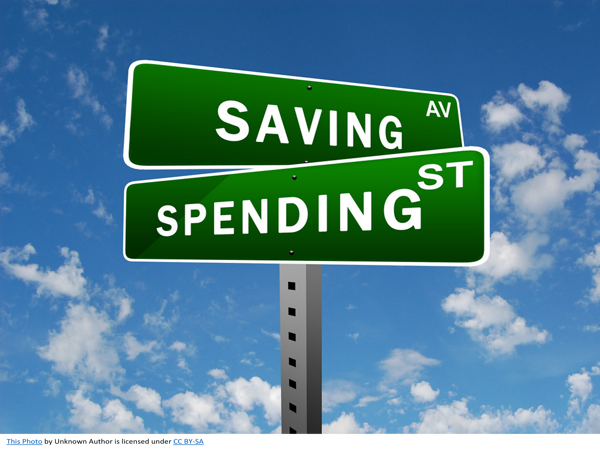My name is Kemi, and like many others, I fell into the trap of lifestyle inflation without even realizing it. It all started innocently enough—a new job, a higher salary, and the temptation to reward myself for my hard work. But before I knew it, my spending had spiraled out of control, leaving me with little to save for the future. Here's my story and how I managed to turn things around, especially in a Nigerian context where the pressure to keep up appearances can be overwhelming.
The Beginning of Lifestyle Inflation
When I graduated from university, I was fortunate enough to land a well-paying job in Lagos. With my new income, I no longer had to worry about the basics—rent, food, transportation—everything seemed to be within reach. But as my bank account grew, so did my spending habits. I convinced myself that I deserved to enjoy the finer things in life. After all, I had worked hard to get to where I was.
I upgraded my wardrobe, dined at fancy restaurants, and even started planning vacations to exotic locations. At first, it felt good—really good. I was living the life I had always dreamed of. But soon enough, the thrill began to wear off, and I found myself constantly chasing the next big thing, the next luxury purchase, the next status symbol.
The Reality Check
It wasn't until I decided to take out a student loan to further my education that I had a serious wake-up call. I applied for the loan, thinking it would be a breeze to pay back given my salary. But when the loan was approved, and I saw the repayment schedule, I realized just how tight my finances had become. The truth hit me hard: I had been living paycheck to paycheck, with no real savings to speak of.
My initial excitement about advancing my education quickly turned to anxiety. How was I going to manage the loan repayments alongside my current lifestyle? The thought of cutting back on my spending seemed impossible at first. But deep down, I knew something had to change.
Taking the First Steps
The first step I took was to sit down and take a hard look at my finances. I listed all my income sources and then tracked my expenses for a month. The results were shocking. I was spending almost half of my income on non-essential items—clothes, gadgets, dining out, and entertainment. It became clear that if I wanted to secure my future, I had to make some tough decisions.
I started by setting a budget. I allocated a specific amount for necessities—rent, utilities, transportation, and groceries—and then set a limit for discretionary spending. This meant fewer dinners at expensive restaurants, no more impulsive shopping sprees, and definitely no more luxury vacations for a while.
The Role of Digital Technology
One of the tools that helped me stay on track was a budgeting app that I downloaded on my phone. In Nigeria, where digital technology is rapidly growing, there are numerous financial management apps designed to help you monitor your spending and savings. These apps allow you to set financial goals, track your expenses, and even receive alerts when you're about to exceed your budget. I found this particularly useful as it kept me accountable and gave me a clear picture of where my money was going.
I also started using online platforms to find affordable alternatives to the luxuries I had grown accustomed to. For instance, instead of dining out, I began cooking at home using recipes I found on Nigerian food blogs. I also discovered second-hand stores and online marketplaces where I could buy quality items at a fraction of the cost.
The Benefits of Cutting Back
As I gradually reduced my spending, I began to see the benefits. I was able to make my student loan payments without stress, and for the first time in years, I started to save. I set up an emergency fund, something I had always planned to do but never got around to. I also began investing a portion of my income in mutual funds and stocks, using online investment platforms that cater to Nigerian investors.
Cutting back on luxury spending also gave me a sense of control over my life. I was no longer living paycheck to paycheck, and the anxiety that had plagued me for months started to dissipate. I realized that true financial freedom wasn't about how much money I could spend, but how much I could save and invest for the future.
Lessons Learned
Looking back, I see that lifestyle inflation had been a trap—one that I had willingly walked into. It took a student loan and the fear of financial instability to make me realize the importance of living within my means. Now, I focus on building wealth rather than displaying it.
If you're in a similar situation, here are some steps you can take to avoid or overcome lifestyle inflation:
Track Your Expenses: Keep a record of everything you spend. This will help you identify areas where you can cut back.
Set a Budget: Create a budget that prioritizes savings and investments over discretionary spending.
Use Technology: Take advantage of budgeting apps and online financial tools to manage your money effectively.
Find Affordable Alternatives: Look for ways to enjoy life without overspending. Cooking at home, buying second-hand, and opting for local vacations can save you a lot of money.
Plan for the Future: Set financial goals and work towards them. Whether it's paying off debt, saving for a house, or investing in your education, having a clear plan will keep you motivated.
By taking these steps, you can avoid the pitfalls of lifestyle inflation and secure a financially stable future. Trust me, the peace of mind that comes from financial security is worth far more than any luxury purchase.

.jpg)







